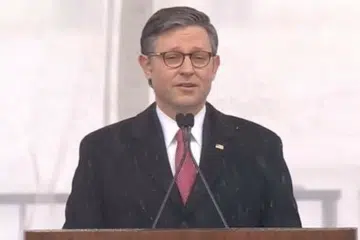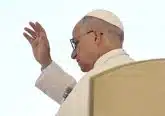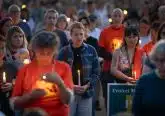Charlotte bishop delays Traditional Latin Mass restrictions after backlash
National Catholic Register, Jun 4, 2025 / 09:39 am
The bishop of Charlotte, North Carolina, has delayed his plan to restrict the Traditional Latin Mass (TLM) in his diocese, pushing the date back by nearly three months after a week and a half of significant backlash in North Carolina and beyond.
Bishop Michael Martin has determined that a plan to restrict the TLM from four parish churches to a single, designated chapel will now go into effect on Oct. 2, according to a June 3 story from the Catholic News Herald, the diocese’s official newspaper. The Charlotte bishop had previously announced on May 23 that the restrictions would go into effect on July 8.
The Herald reported that Martin made the change after accepting a request from the priests of the parishes where the TLM is currently celebrated to delay the restrictions, which he said he had originally scheduled to coincide with changes in diocesan assignments.
“It made sense to start these changes in July when dozens of our priests will be moving to their new parishes and other assignments,” the bishop told his diocesan paper. “That said, I want to listen to the concerns of these parishioners and their priests, and I am willing to give them more time to absorb these changes.”
Martin also told the Herald that if the Vatican changes required restrictions of the TLM, the Diocese of Charlotte “would abide by those instructions.”
The bishop’s delay comes after his decision to restrict the TLM in Charlotte — several months ahead of a Vatican deadline — faced criticism for being premature and unnecessarily restrictive.
Critics pointed out that Martin’s restriction to a single non-parish chapel was being made months ahead of an October cutoff of an extension the Vatican had previously granted the diocese to implement Traditionis Custodes, Pope Francis’ 2021 apostolic letter that called for limiting the availability of the TLM to non-parish churches and established Vatican oversight over associated permissions. Some speculated that the timing of the Charlotte moves would effectively preempt Pope Leo XIV, who may choose to regulate the TLM differently than Pope Francis.
The new target date for the Charlotte TLM restrictions now aligns with the original deadline of the Vatican’s extension, which had been requested by the previous ordinary of Charlotte, Bishop Peter Jugis, who retired in April 2024.
The controversy expanded when sweeping liturgical norms Martin had drafted — which included a ban on Latin in all diocesan liturgies and the prohibition of other traditional liturgical practices like “ad orientem” worship — were publicly leaked.
The Diocese of Charlotte told the Register at the time that the document, which would apply to all forms of the Mass, not just the TLM, was “an early draft that has gone through considerable changes over several months” and is still being discussed by the diocesan presbyteral council and Office for Divine Worship. Given references to Pope Francis, the document appears to have been drafted prior to the late pope’s April 21 death.
“It represented a starting point to update our liturgical norms and methods of catechesis for receiving the Eucharist,” said diocesan communications director Liz Chandler, adding that the norms will be “thoroughly reviewed” in accord with the teaching of the Second Vatican Council and the General Instruction of the Roman Missal (GIRM).
Although the changes have not gone into effect, critics contended that Martin’s justification for them was not consistent with Church teaching, including Vatican II’s pastoral constitution on the liturgy, Sacrosanctum Concilium.
Others raised concerns that Martin, who marked his one-year anniversary as Charlotte’s bishop on May 29, was engaging in unnecessary micromanagement and had failed to adequately listen to people in his diocese.
In addition to allowing the affected communities more time to accept the changes to the TLM in Charlotte, Martin told diocesan priests in a June 3 email that the delay “allows more time for the transition and for renovation of a chapel designated for the TLM community,” according to the Herald.
The diocese is putting $700,000 toward renovations of the designated TLM chapel, which was formerly the home of the Freedom Christian Center, a Protestant community.
The Herald described the Mooresville chapel as “strategically located” between the diocese’s two biggest population centers, but critics have complained that it is more than a two-hour drive from St. John the Baptist in Tryon, one of the four parishes where the TLM will be prohibited starting Oct. 2.
The diocese reports that approximately 1,100 people attend the TLM in Charlotte each week.
This story was first published by the National Catholic Register, CNA’s sister news partner, and has been adapted by CNA.













